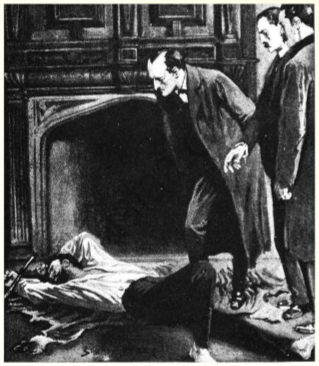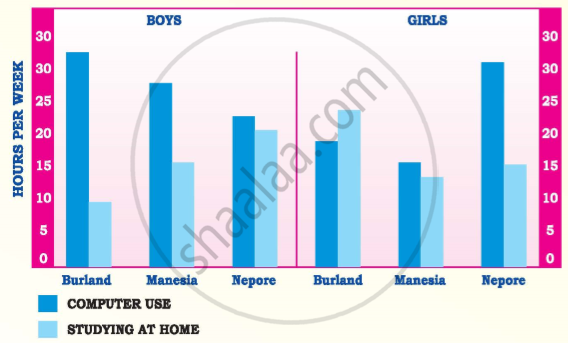Advertisements
Advertisements
प्रश्न
On the basis of your understanding of the poem, answer the following questions by ticking the correct choice
The poem is narrated in the first person by the brook. This figure of speech is
पर्याय
Personification
Metaphor
Simile
Transferred epithet
उत्तर
Personification
APPEARS IN
संबंधित प्रश्न
Here is a story about Swami and his grandmother. After reading the excerpt, change it into a conversation between Swami and his Grandmother.
After the night meal with his head on his granny’s lap, nestling close to her, Swaminathan felt very snug and safe in the faint atmosphere of cardamom and cloves. ‘Oh, Granny !’ he cried ecstatically. ‘You don’t know what a great fellow Rajam is.’ He told her the story of the first enmity between Rajam and Mani and the subsequent friendship.
‘You know, he has a real police dress,’ said Swaminathan. ‘Is it? What does he want a police dress for?’ asked Granny.
‘His father is the Police Superintendent. He is the master of every policeman here.’ Granny was impressed. She said that it must be a tremendous office indeed. She then recounted the days when her husband, Swaminathan’s grandfather, was a powerful sub-magistrate, in which office he made the police force tremble before him and the fiercest dacoits of the place flee. Swaminathan waited impatiently for her to finish the story. But she went on, rambled, confused, mixed up various incidents that took place at different times. ‘That will do, Granny,’ he said ungraciously. ‘Let me tell you something about Rajam. Do you know how many marks he gets in arithmetic?’
‘He gets all the marks, does he, child?’ asked Granny.
‘No silly. He gets ninety marks out of one hundred.’
‘Good. But you must also try and get marks like him…. You know, Swami, your grandfather used to frighten the examiners with his answers sometimes. When he answered a question, he did it in a tenth of the time that others took to do it. And then, his answers would be so powerful that his teachers would give him two hundred marks sometimes.
‘Oh, enough, Granny ! You go on bothering about old unnecessary stories. Won’t you listen to Rajam?’
‘Yes, dear, yes.’
‘Granny, when Rajam was a small boy, he killed a tiger.’
Swaminathan started the story enthusiastically : Rajam’s father was camping in a forest. He had his son with him. Two tigers came upon them suddenly, one knocking down the father from behind. The other began chasing Rajam, who took shelter behind a bush and shot it dead with his gun.
‘Granny, are you asleep?’ Swaminathan asked at the end of the story.
Now read the dialogue and complete the conversation:
Swarni: You don’t know what a great fellow Raj am is! In the beginning I could not get along with him but now he is my good friend. And you know, he has a real police dress.
Grandmother: Is it? What does he want a police dress for?
Swarni: His father is the Police Superintendent. He is the master of every policeman here.
Grandmother: I think, it must be a tremendous office. Do you know, your grandfather was a powerful submagistrate and the Police Force trembled before him? Even the fiercest dacoits of the place fled.
Swarni: That will do, Granny. It’s so boring. Let me tell you something about Raj am. Do you know how many marks he gets in arithmetic?
Grandmother: He gets all the marks, doesn’t he, child?
Based on your reading of the story, answer the following question by choosing
the correct option.
“Bully”, said Pescud brightening at once.
He means to say that____
Answer the following question briefly.
Does the speaker seem happy about his decision?
On the basis of your understanding of the poem, answer the following question
by ticking the correct choice.
The seven roles that a man plays correspond to his __
Read the following extracts and answer the questions that follow by choosing the correct options.
But the sign has been hanging on the gate for over a month now and I am beginning to
be afraid that the day I bought it was when I was the real fool.
a) Why is Juliette disappointed?
(i) she is unable to get a role of cook in the films.
(ii) her maid is leaving as she has got a role in the films.
(iii) she is unable to find a suitable buyer for her villa.
(iv) Gaston is offering a very low price for the villa.
b) Why does she call herself a fool?
(i) she has decided to sell her villa.
(ii) there are no buyers for the villa.
(iii) she had bought the villa for more than it was worth.
(iv) the villa was too close to the film studios.
(а) Mohan comes in wearing overalls and is covered in paint.
(i) _______________________________________
(ii) _______________________________________
(b) Ramesh comes in with a smile on his face. He is holding a trophy.
(i) _______________________________________
(ii) _______________________________________
(c) Monica returns home with lots of packets in her hands.
(i) _______________________________________
(ii) _______________________________________
(b) Sheela comes in with red eyes and a wet handkerchief.
(i) _______________________________________
(ii) _______________________________________
Choose a suitable word from the options given and complete the story from Tunisia.
A weary traveller stopped at a Bedouin’s tent and asked for shelter for the night. Without (a)_______ delay, the man killed (b) _______chicken and handed it to (c)_______ wife for (d)___________ guest’s supper. As the woman stirred the meat in (e) _______ copper cooking pot, she smelled the rich steam and could not resist tasting (f)________ of the meat and soup, to see if it was soft and tasty. But mouthful followed mouthful, and there wasn’t (g)__________chicken left but for the neck piece, which she gave to her little son to nibble. The boy found it so tasty that he whined, “Give me (h)_______ more chicken, mother!” The woman slapped the little boy and scolded him: “It’s a shameful habit (i)______ father taught you, enough of it, I tell you!” On the (j) _______ side of the wooden hanging which screened the woman’s part of the tent from the rest, the traveller overheard them. “What habit has (k)______ father taught (l) _______ child?” he asked curiously. “Oh,” said the woman, “whenever a guest arrives at (m)_______ tent, he cuts off his ears and roasts them over the fire for (n)______ son to eat.” Making not a sound, the traveller picked up (o)_______ shoes and ran.
| (a) (i) no any (ii) little (iii) any (iv) no |
| (b) (i) a few (ii) some (iii) few (iv) a |
| (c) (i) his (ii) her (iii) their (iv) there |
| (d) (i) the (ii) a (iii) theirs (iv) their |
| (e) (i) her (ii) hers (iii) the (iv) an |
| (f) (i) some (ii) few (iii) a few (iv) more |
| (g) (i) any (ii) some (iii) a few (iv) few |
| (h) (i) little (ii) a little (iii) a few (iv) some |
| (i) (i) hers (ii) yours (iii) their (iv) his |
| (j) (i) another (ii) another (iii) other (iv) one |
| (k) (i) hers (ii) her (iii) him (iv) his |
| (l) (i) a (ii) an (iii) the (iv) x |
| (m) (i) x (ii) our (iii) ours (iv) their |
| (n) (i) their (ii) his (iii) him (iv) our |
| (o) (i) her (ii) his (iii) our (iv) x |
The following note comes from an army booklet, “Advice to New Recruits.” Complete the instructions by filling in the blanks with suitable modals.
Welcome to Ranor Barracks!
Follow the rules, accept the advice and you will find your life in the army interesting and fulfilling.
You ________ have your hair cut very short in the first month. After that you ________
grow it longer but it ________ never touch your collar. Your uniform ________ be kept clean and tidy. Boots and buttons ________ be polished daily. You ________ use cell phones on the campus but you ________ switch them off during the training sessions. Before joining you ________ have a medical check-up. You ________ undergo medical examinations once a year during service.
Look at the picture below and list some phrases and words that come to your mind when you look at it.

Study the following graph and the accompanying report.

Our study of the time spent by students at the computer and studying at home in three countries has revealed some interesting facts.
First, the majority of boys and girls in the age groups of 14-16 in these countries spend more time at the computer than studying at home. Children in these countries spend an average of20-30 hours per week in comparison to 10-15 hours of studying at home. The only exception is Burland where girls spend more time studying at home than at the computer.
Secondly it is evident that in all three countries, time spent at the computer is having a serious impact on the number of hours spent studying at home. In fact, the greater the number of hours spent at the computer, the fewer number of hours are being spent studying. For example, boys in Burland spend an average of 32 hours at the computer while they spend about 8 hours studying at home.
